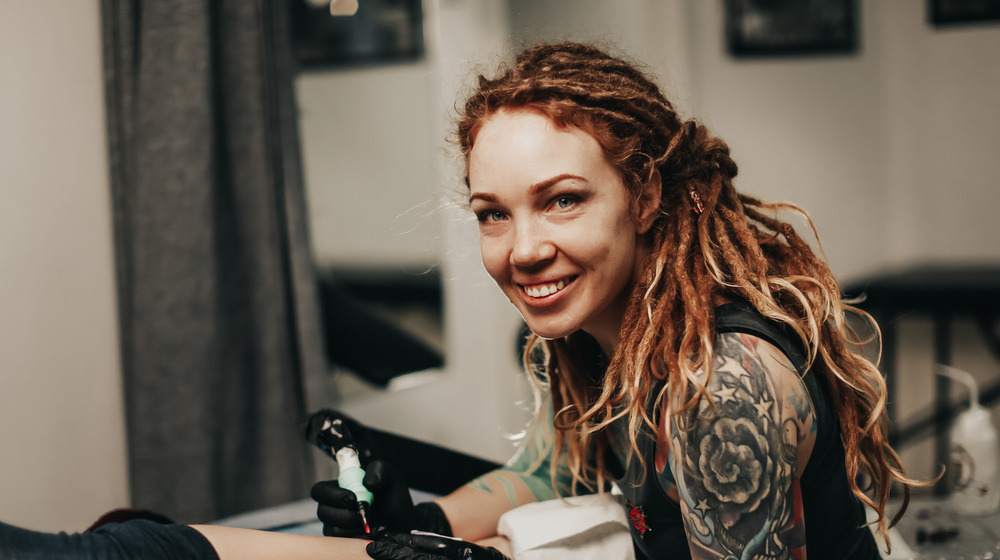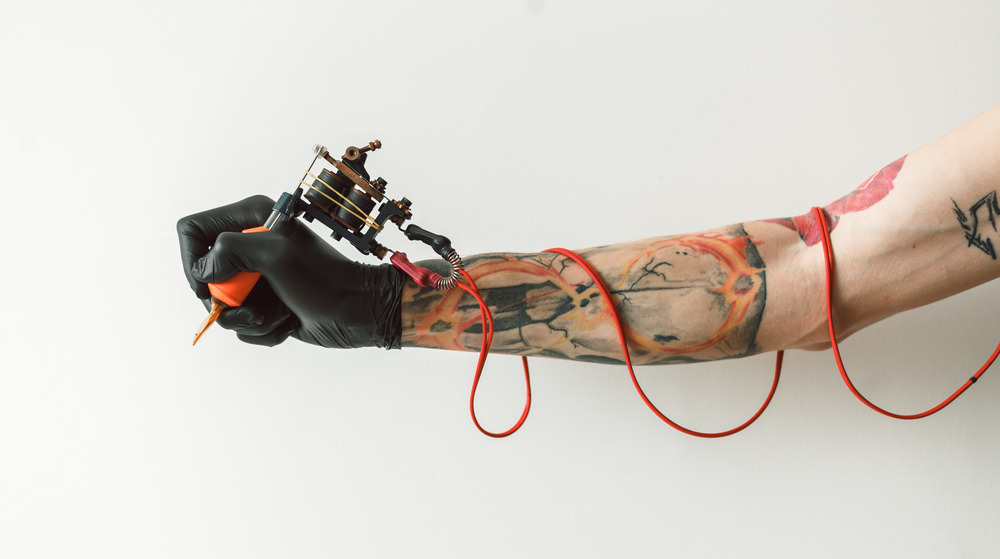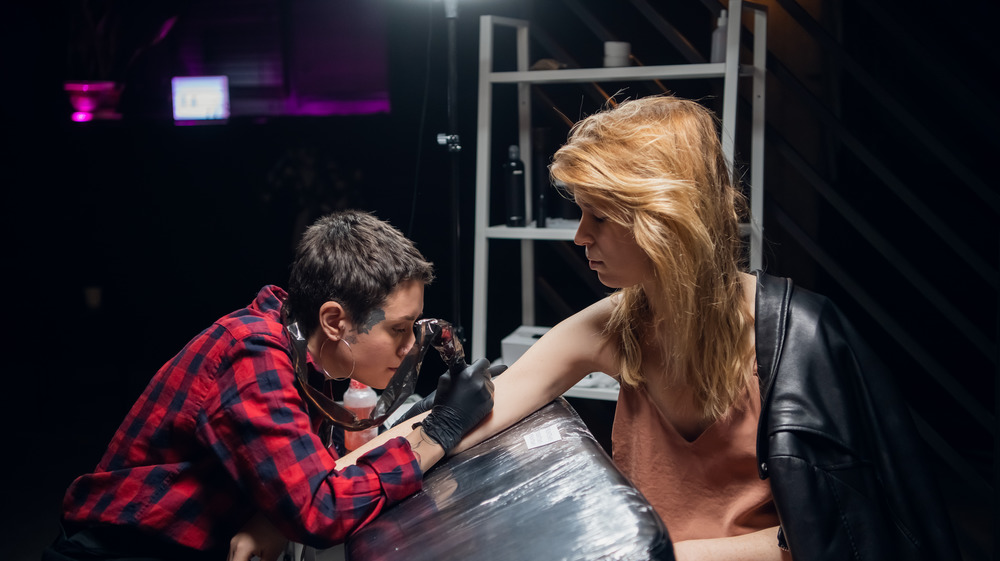Don't Give Yourself A Stick-And-Poke Tattoo Without Reading This
A rising and dangerous trend in tattooing is the resurgence of the ancient practice of stick-and-poke. Simply put, the process involves permanently marking the body by repeatedly inserting a needle, by hand, from ink to skin (via Byrdie). According to research published in the journal Papers from the Institute of Archaeology, evidence of stick-and-poke tattoos date back to ancient Egypt, and as Hypebeast notes, were prevalent amongst Maori tribes as well as with Buddhist monks in Thailand.
With a practice that old and steeped in history, you'd think it's application infallible, but with time and technology comes wisdom, and we've learned a lot about infection and sterilization since then. While a tattoo gun is essentially meant to mimic the stick-and-poke method, the modern implement is not only much more efficient, but it is also the safest most commonly used practice, and the one most tattoo artist are fully licensed and trained to use (via DazedDigital).
You should only get tattooed by a licensed professional
Popular within the punk genre as a statement against the status quo, the trend of DIY and stick-and-poke tattoos going mainstream is almost inconceivably ironic. From influencers posting how-to videos on YouTube to celebrities sharing their artwork, the "cool" factor has been lost in translation for this dangerous practice (via Hypebeast and Stick and Poke Tattoo). For people in-the-know, that's a good thing.
Board certified dermatology physician assistant, Jamie Kim, explained to Dazed Digital that at-home tattoos are a bad idea, period. And getting any tattoo, stick-and-poke or otherwise, should be reserved for trained professionals in a sterile environment. Kim added, [Tattoo artists] are trained to avoid cross contamination and thus avoid causing infections and spreading bloodborne pathogens such as Hepatitis B and C. Even though you might think you're sterilizing your equipment with alcohol, sometimes it's not enough to destroy certain bacteria and viruses."
Celebrity tattoo artist JonBoy agrees, stressing to the outlet that at-home stick-and-poke kits are incredibly dangerous and do not give unlicensed persons the green-light to safely tattoo. He explains, "Believe me, I'm all about keeping the art of tattooing alive, but having easy access to the tools is very irresponsible. If we've learned anything from this pandemic we've learned that viruses live among us and if we're not careful we can do more harm than not when dealing with our health. When you are working with bloodborne pathogens it's really crucial that you are properly trained and educated to minimize any risks of spreading any kind of bacteria or viruses."
Do your research and find a licensed artist who specialized in stick-and-poke
Done by someone unfamiliar with the intricacies of the art form and the hygiene risks associated with the stick-and-poke style, even if they are a licensed tattoo professional, is dangerous. Cameron Rokhsar, associate clinical professor of dermatology at Mount Sinai Hospital told Vice, in addition to the risk of Staph infections, and tetanus, improper stick-and-poke practices can leave you susceptible to what he describes as a, "host of communicable diseases like HIV, hepatitis B and hepatitis C."
Basically, this isn't something to take lightly. While you should never be flippant about permanently inking your skin, in the case of stick-and-poke tattoos you should be even more vigilant than you normally would. Remember, this isn't about being stuck with bad ink or a piece that fades quickly, which according to Dazed Digital is common with stick-and-poke tattoos. It's about your health and safety. If you're heart is set on the traditional style, you aren't without options. Do your research, and as Jezebel notes, find a professional artist who is knowledgeable in the style. That way you can achieve the perfect tattoo that not only matches your aesthetic but keeps you out of the emergency room!


